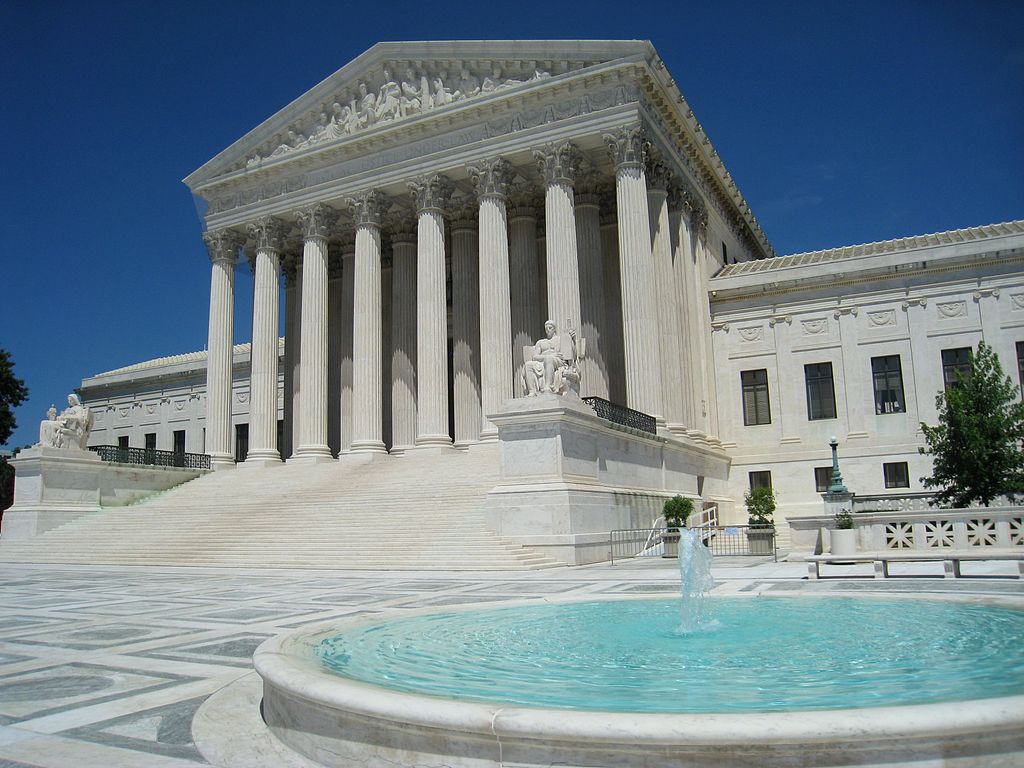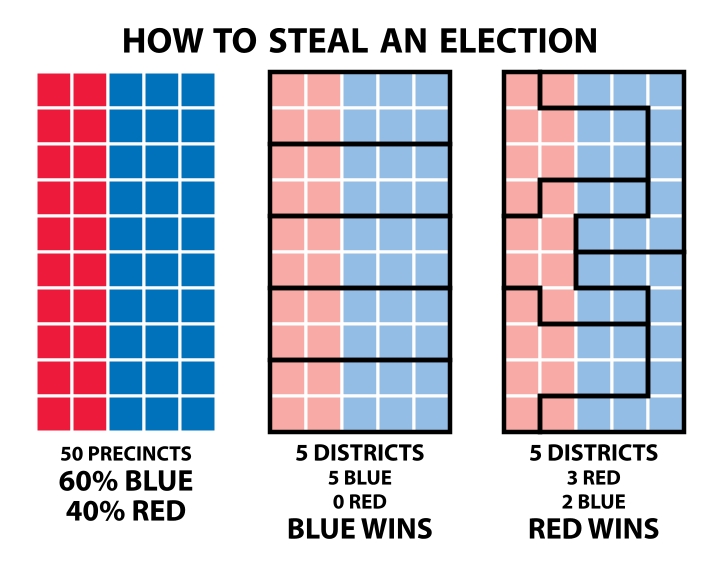Amended Whitford Complaint Highlights Harm Caused by Wisconsin’s Partisan Gerrymander to 40 Plaintiffs Across 34 Districts
It's time for the courts to stop hesitating and start protecting the fundamental right to vote from the harms of gerrymandering
MADISON – Today, Campaign Legal Center (CLC), along with co-counsel, filed an amended complaint challenging Wisconsin’s 2011 state assembly map as a partisan gerrymander in the U.S. District Court in Wisconsin. CLC and co-counsel, representing voters in 34 state legislative districts, have followed instructions provided by Chief Justice John Roberts in the Supreme Court’s opinion in June when it declined to address the merits of the lower court’s decision. CLC and co-counsel have added 28 new plaintiffs and evidence proving that the state’s redistricting plan inflicted district-specific harm on plaintiffs by diluting their votes, as well as infringing all 40 plaintiffs’ associational rights.
The amended complaint includes additional evidence about district-specific harm to make it clear that plaintiffs with 14th Amendment claims have standing to challenge their district boundaries as diluting their vote, and that plaintiffs with claims under the First Amendment have standing to challenge the whole map because their political association rights have been violated.
“It’s time for the courts to stop hesitating and start protecting the fundamental right to vote from the harms caused by the distortions of gerrymandering,” said Paul Smith, vice president of litigation and strategy at CLC, who argued Gill v. Whitford before the Supreme Court in October. “Partisan politicians met in secret in 2011 to manipulate state assembly district lines to ensure Republican control over Wisconsin for the next decade, regardless of how the votes were cast. We are asking for a trial date early in 2019, so we can fight to give voters fair maps for the 2020 election.”
“The voters of Wisconsin have had to vote under an unconstitutional map for far too long,” said University of Wisconsin-Madison law professor Bill Whitford, the named plaintiff in the case. “We followed the Supreme Court’s roadmap and entered additional evidence into the record that strengthened our case, showing real harms to voters caused by lawmakers who chose their own partisan self-interest over the good of the state. We hope to return to the Supreme Court as soon as possible.”
“Extreme partisan gerrymandering has thrown the balance off in this state and made it harder for us to have equal representation in our communities,” said immigrants’ rights organizer Jennifer Estrada of Manitowoc, Wisconsin, a newly added plaintiff in the case. “I’ve seen so many policies that the Wisconsin legislature has put forth – since their 2011 redistricting plan – that have been detrimental to working families. The only options to respond were to sit back and complain or get involved, so I joined the case because I wanted to help give people a voice in the political process by fighting back against the practice of partisan gerrymandering. It’s really sad that our own representatives put in place roadblocks like gerrymandering that prevent people from feeling like they have a voice and that their vote counts.”
- Learn more about the bipartisan effort to curb the practice of partisan gerrymandering nationwide
- View the results of the first-ever bipartisan survey on partisan gerrymandering and the Supreme Court
- Visit CLC’s case page to see all legal filings in the case, Gill v. Whitford
*Private counsel working with CLC in representing the appellees includes Douglas M. Poland of Rathje & Woodward, Peter G. Earle of the Law Office of Peter G. Earle, LLC, Michele L. Odorizzi of Mayer Brown, Nicholas O. Stephanopoulos of the University of Chicago Law School and Jessica R. Amunson of Jenner & Block.
NOTE: This press release was submitted to Urban Milwaukee and was not written by an Urban Milwaukee writer. While it is believed to be reliable, Urban Milwaukee does not guarantee its accuracy or completeness.
More about the Gerrymandering of Legislative Districts
- Without Gerrymander, Democrats Flip 14 Legislative Seats - Jack Kelly, Hallie Claflin and Matthew DeFour - Nov 8th, 2024
- Op Ed: Democrats Optimistic About New Voting Maps - Ruth Conniff - Feb 27th, 2024
- The State of Politics: Parties Seek New Candidates in New Districts - Steven Walters - Feb 26th, 2024
- Rep. Myers Issues Statement Regarding Fair Legislative Maps - State Rep. LaKeshia Myers - Feb 19th, 2024
- Statement on Legislative Maps Being Signed into Law - Wisconsin Assembly Speaker Robin Vos - Feb 19th, 2024
- Pocan Reacts to Newly Signed Wisconsin Legislative Maps - U.S. Rep. Mark Pocan - Feb 19th, 2024
- Evers Signs Legislative Maps Into Law, Ending Court Fight - Rich Kremer - Feb 19th, 2024
- Senator Hesselbein Statement: After More than a Decade of Political Gerrymanders, Fair Maps are Signed into Law in Wisconsin - State Senate Democratic Leader Dianne Hesselbein - Feb 19th, 2024
- Wisconsin Democrats on Enactment of New Legislative Maps - Democratic Party of Wisconsin - Feb 19th, 2024
- Governor Evers Signs New Legislative Maps to Replace Unconstitutional GOP Maps - A Better Wisconsin Together - Feb 19th, 2024
Read more about Gerrymandering of Legislative Districts here
Mentioned in This Press Release
Recent Press Releases by Campaign Legal Center
Amended Whitford Complaint Highlights Harm Caused by Wisconsin’s Partisan Gerrymander to 40 Plaintiffs Across 34 Districts
Sep 14th, 2018 by Campaign Legal CenterIt's time for the courts to stop hesitating and start protecting the fundamental right to vote from the harms of gerrymandering
Legendary SCOTUS Litigator Paul M. Smith Joins Whitford v. Gill Legal Team
Jan 5th, 2017 by Campaign Legal CenterResponse Brief on Remedies is Submitted Today to Federal District Court
HISTORIC DECISION: Wisconsin Federal Court Strikes Down Partisan Gerrymander and Adopts Groundbreaking Legal Standard
Nov 21st, 2016 by Campaign Legal CenterLitigators and lead plaintiff react to historic decision























